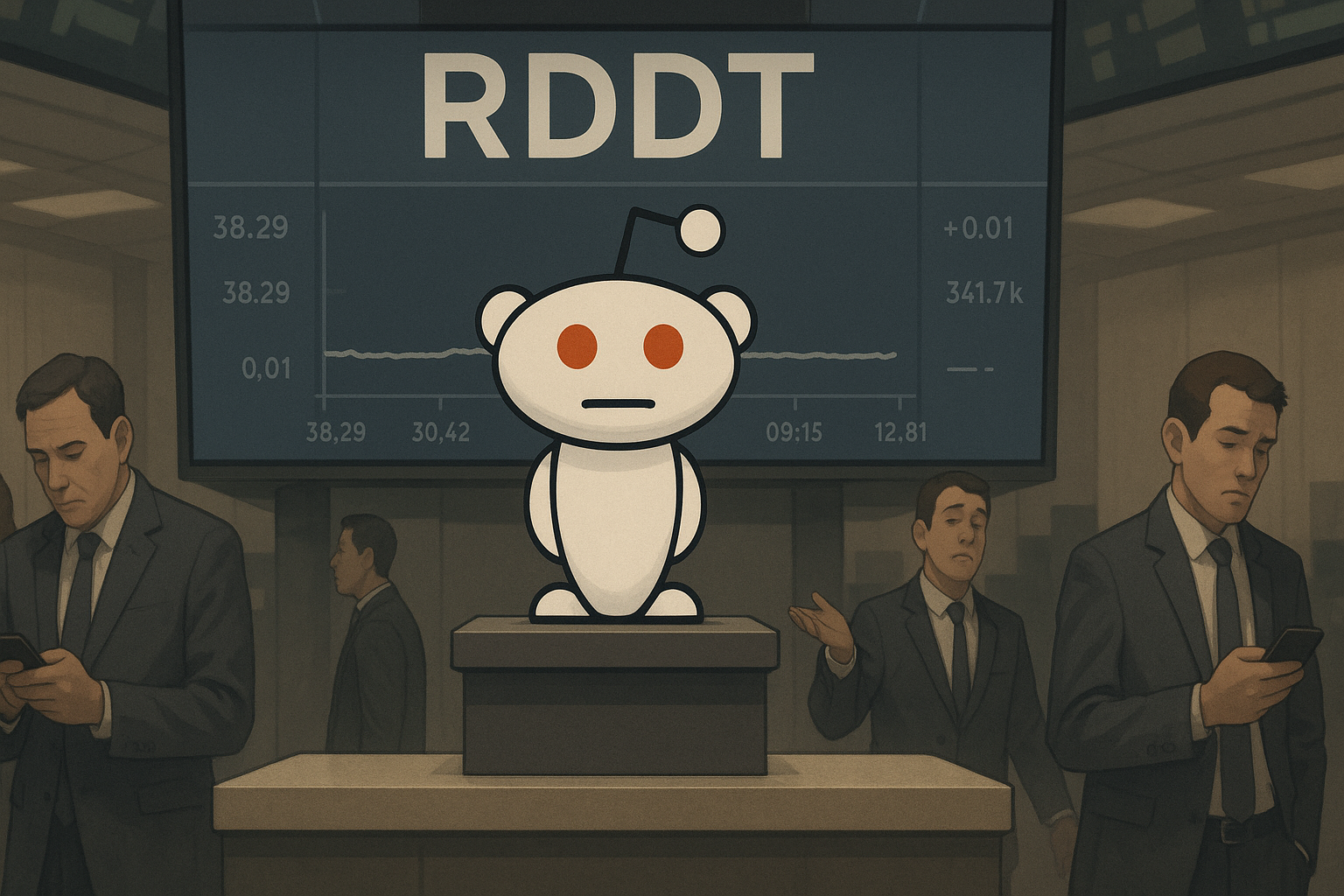There's something genuinely strange happening with Reddit in the investment world. Here we have a global top-10 website—a genuine internet powerhouse—sitting with a market cap under $50 billion, and yet it's generating about as much investor enthusiasm as a municipal bond seminar on a rainy Tuesday afternoon.
The silence is deafening.
I've been covering tech stocks for years, and I can't remember seeing such a disconnect between a company's cultural footprint and its investment buzz. When Facebook (now Meta) went public back in 2012, you couldn't escape the coverage. Investors were practically trampling each other to get in. Reddit's public debut? More like watching paint dry at an avant-garde gallery—technically something's happening, but nobody seems particularly moved by it.
So what gives? Why the collective shoulder shrug toward RDDT?
The ownership structure is, well, problematic. With 87.5% institutional ownership (that's extraordinarily high, by the way), the big money players have already carved up most of the pie. It's like showing up to a buffet an hour after the football team arrived—sure, there's technically still food, but all the prime rib disappeared long ago.
This creates a classic information problem. When BlackRock, Vanguard, and their ilk have already staked their claims, retail investors rightly wonder: what do these behemoths know that I don't? Or perhaps more unsettling—what do they think they know?
Then there's the business fundamentals question that nobody wants to ask out loud: What exactly is Reddit's competitive advantage?
Listen, the internet graveyard is full of once-dominant platforms that seemed untouchable. Remember MySpace? Digg? (Heck, remember when Yahoo was worth fighting over?) Social platforms can fall faster than they rise, and Reddit's revenue model—still primarily ad-based after all these years—isn't exactly revolutionary in a world where Google and Meta are vacuuming up digital ad dollars.
The company only became profitable after 18 years of existence. Eighteen years! That's not the kind of growth trajectory that has investors calling their brokers at midnight.
And here's where it gets tricky... Reddit's communities are largely self-governed, which creates both its greatest strength and potentially its greatest vulnerability. I've watched several moderation crises unfold on the platform over the years, including last summer's massive community blackouts. One poorly handled community revolt could send engagement metrics—the lifeblood of any social platform—into a tailspin.
The comparison to Facebook's IPO feels natural but misses crucial differences. When Zuckerberg took his creation public, Facebook had already solved the profitability puzzle in ways Reddit is still figuring out. Facebook had product-market fit your grandmother could understand; Reddit still requires a certain digital savviness that limits mainstream adoption.
There's something almost contradictory about Reddit as a public company. Its users—and I count myself among them—tend to be more tech-savvy, more skeptical of corporate motives, and more resistant to obvious monetization attempts than users on other platforms. The very culture that makes Reddit valuable might fight against the changes needed to maximize shareholder returns.
I mean, c'mon—this is a platform where users routinely revolt against seeing ads at all, where corporate PR disasters unfold in real-time during AMAs gone wrong, and where communities have literally shut down to protest management decisions. Not exactly the smooth sailing that gets investors excited.
None of this means Reddit is necessarily a bad investment—just a complicated one. Its cultural significance? Undeniable. Its user base? Passionate and engaged. Its position as a unique aggregator of communities gives it data and insights that few other platforms can match.
But investing isn't just about finding important companies; it's about finding important companies at the right price, with the right growth trajectory, at the right time. And right now, Wall Street seems unconvinced that Reddit checks all those boxes.
The institutional dominance creates another headache: potential volatility. With retail investors holding such a small slice, any major institutional holder deciding to trim their position could send the stock tumbling for reasons completely disconnected from actual business performance.
So here we sit, with one of the internet's most influential platforms generating less investor chatter than a mid-tier regional bank or a speculative biotech startup with a single drug in Phase 2 trials.
It's not that Reddit lacks importance—it's that the gap between its cultural significance and its investment case remains wider than many expected.
And maybe that's fine. Not every culturally significant company needs to be a market darling. Sometimes the most interesting businesses make the most puzzling investments. Reddit may eventually prove the skeptics wrong, but until then, the market's silence speaks volumes.
